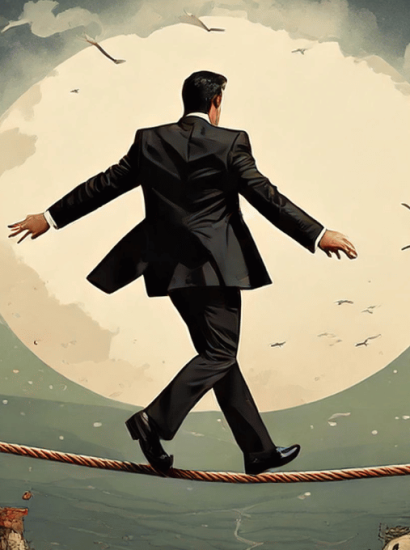This post is also available in: ΕΛΛΗΝΙΚΑ (GREEK) TÜRKÇE (TURKISH)
Once it became clear that Nikos Christodoulides would be a presidential candidate, the debate focused on whether Cyprus would follow the example of France, electing to the highest office of the country a politician who would not be the candidate of either of the two major parties, nor would he be backed by them. His continued predominance in the opinion polls and the horizontal support he receives from all parties, together with the inability, mainly of Averof Neophytou, to bring the DISY (Translator’s note: Democratic Rally) party together, has led a considerable number of people to present him as the Macron of Cyprus, assigning to his candidacy the electoral and qualitative characteristics of the French President. Is Nikos Christodoulides, however, the Macron of Cyprus?
Despite clear differences (e.g., Macron broke with his party and promised a change in the policies pursued, while Christodoulides remains a member of DISY and states that “better is the enemy of good”), it is true that the candidacy of the former Foreign Minister is similar to that of the French President, mainly as far as image is concerned. Nikos Christodoulides, like Macron, was part of the Council of Ministers of the Anastasiades government and served the establishment without any hesitation (until DISY considered it reasonable to demand his removal, allowing him to distance himself in the eyes of the world from government and the opposition to support him without supporting the Anastasiades government). He has, therefore, in a paradoxical way, emerged as the change in the political establishment, coming from the very bowels of the establishment. Moreover, as in the case of Emmanuel Macron, his popularity is the result of the weakening of the parties and the looser relationship between voters and parties. The most common feature of both, however, is their political advancement and what has led to it. And this is what makes it difficult to deal with the former Foreign Minister from the existing potential. Because whatever led to this rise has nothing to do with the positions he expresses, nor with the policies he pledges to fulfil. It has to do with society’s need for change and its belief that this change is possible simply by changing people.
We live in abnormal times. The total dismantling of the party system as we knew it in a historical Democracy such as France, with the collapse of the old Right and the disembodiment of the Socialists, shows that the traditional party system is under unprecedented challenge, which paves the way for forces or persons where it is not clear what they advocate, nor where they intend to drive their countries. The result of this challenge was the election of Macron, the rise of Le Pen to 43%, and the apparent predominance of Nikos Christodoulides. People are sick of the parties; they have run out of patience. And they want to get rid of the establishment by any means.
Hence, the lack of clear positions does not bear any cost for Nikos Christodoulides; but also, those who hope that if he does not come forward with a clear manifesto he will fail, will be surprised. It is not because of his positions that he is the preferred candidate by those who prefer him. This makes it difficult to deal with him in political terms. As long as the system is unable to change, those who promise to bring about change will emerge as the alternative solution. And they will convince a significant proportion of society to follow them.
Therefore, the answer to the question jokingly put to me by a friend as to what extent Nikos Christodoulides can be described as the Macron or the Le Pen of Cyprus when we were discussing the French elections, may not be the key issue. Someone can highlight his moderate/centrist character and his mild profile yet someone else may point to his alleged close ties with Russia and the Church. One could say that he is Macron five years ago and another may compare him to Le Pen this year. And they would both be right. Because Nikos Christodoulides is not there because of his positions and stance. It is society’s reaction to the political system. Even if it is not the answer to the country’s problems. Besides, if the electoral battles everywhere have proven anything in recent years, it is that the system is difficult to change with a change of person. What drove Macron to power from nowhere five years ago, has now, five years down the line – despite his re-election – brought him into doubt and we find Le Pen at 43%. This shows that the system does not change as long as societies do not change.
This is where we should focus our attention. How does the system change, how do we limit the access of specific groups to executive decisions, how do we force the system to work for the benefit of the many, how do we control the system in general. If we achieve this, then the choices will become different, and the stakes of the elections will become higher. Ideas and dilemmas will become real. As demonstrated, there are no easy solutions. And those solutions that seem easy rarely prove to be effective.
Source: IS NIKOS CHRISTODOULIDES, THE MACRON OR THE LE PEN OF CYPRUS?






